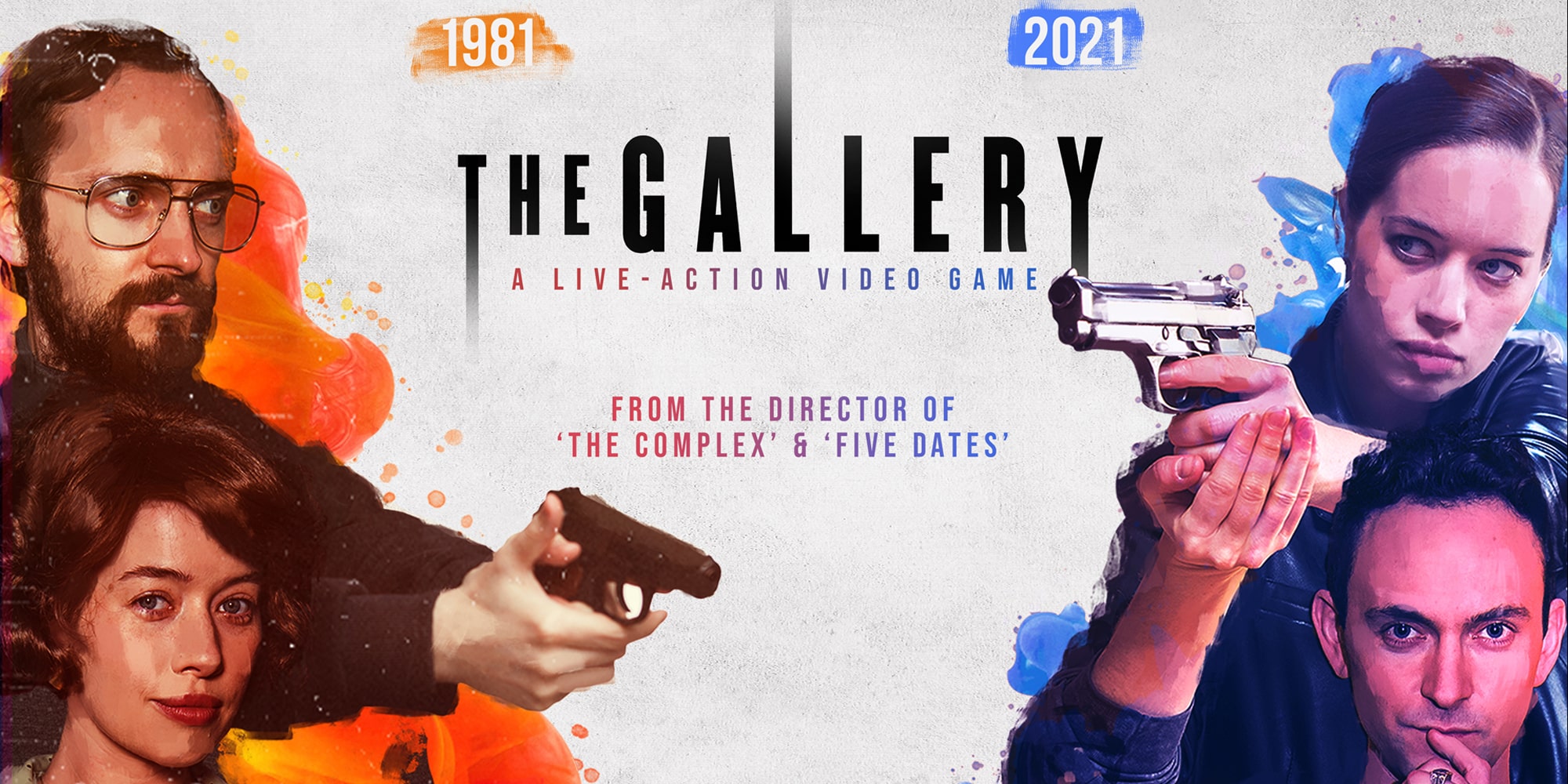by Kate Moody | Stornaway Communications Assistant, April 2023
The Gallery by British director Paul Rashid recently hit screens at the London Games Festival, gaining a wonderful review from The Guardian. The Gallery was officially released in September 2022. Receiving a host of outstanding reviews and a cinematic premiere at the Dinard Film Festival.
Rashid made The Gallery using Stornaway’s unique features, such as game logic and hotspots.
“Having that as a blueprint – having that Stornaway build – has really made the workflow completely seamless because everyone has been singing from the same song sheet.” – Paul Raschid.
Here’s what The Guardian had to say on the piece:

Paul Rachid’s latest is a trenchant & thoughtful post-Brexit treatise, where the group experience, including voting by glowstick, could work like a referendum on modern Britain
“The Gallery has two separate but symmetrical timelines in 1981 and 2021. Plus ça change: both spotlight a reeling and fractured Britain in which the Argyle Manor gallery, about to put on a portrait exhibition, becomes a microcosm for their respective social tensions. In the 1981 timeline, Morgan (Anna Popplewell), a young gallerist in a twinset, is taken hostage by bitter northern painter and would-be revolutionary Dorian (George Blagden). In 2021, Popplewell and Blagden switch roles, but the dilemma is the same: cede to the hostage-taker’s demands to hand over a prize portrait (of Thatcher in the first timeline; of a social-media influencer in the second), or get “Jackson Pollocked” by the bomb under their chair.”
“A single playthrough typically takes just over an hour, with 18 different endings over the two halves. My 1981 run ends in bloody carnage for Morgan and several other characters; realising that the denouement depends largely on your captor’s attitude towards you, I play it obsequiously in 2021, telling Dorian what she wants to hear. Unexpectedly, it still ends in tears, showing how Raschid has invested effort into his causality, capably differentiating the two periods with shifts in set-dressing, theme and language. The hangover from Britain’s winter of discontent in 1981, a reckoning with social media and art-world commodification in 2021; and drab sandwiches for summer first time round, chow mein the next.”


